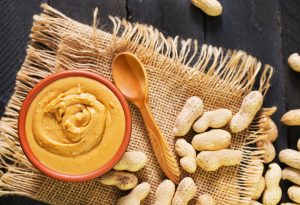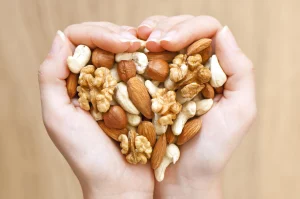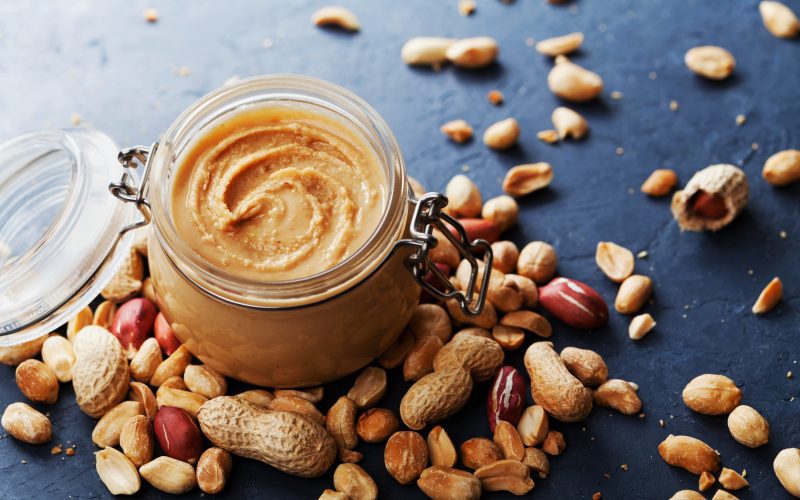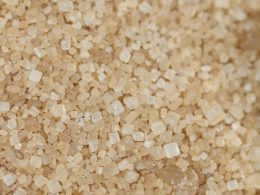Introduction
Constipation is a common concern affecting individuals of all ages, with statistics revealing its prevalence in approximately 16% of adults and a significant 33% of those aged 60 or older in the United States. In this comprehensive article, we explore the potential link between Peanut Butter Cause Constipation, shedding light on the benefits of nuts, alternative choices, and a spectrum of high-fiber foods. From the nuances of peanut butter consumption to the broader landscape of digestive health, we aim to provide a detailed understanding for readers seeking insights into dietary choices and their impact on gastrointestinal well-being.
Peanut Butter and Constipation
Is Peanut Butter a Culprit?
Peanut butter, a beloved spread enjoyed by many, often sparks curiosity regarding its impact on constipation. Contrary to common belief, peanut butter does not inherently cause constipation. In fact, the fiber content in peanut butter can contribute positively to bowel regularity. However, the relationship between peanut butter and constipation is nuanced and depends on various factors.

Key Points:
- Peanut butter is a source of fiber, with a 32-gram serving providing around 10% of the daily recommended fiber intake for a person consuming 2,000 calories a day.
- The National Institute of Diabetes and Digestive and Kidney Diseases (NIDDKD) suggests that insufficient fiber intake may lead to constipation, making peanut butter a potentially beneficial dietary addition.
Factors Influencing the Impact:
- The type and brand of peanut butter can influence its impact on digestive health. Natural peanut butter without added sugar, salt, or fat is preferable.
- Adequate hydration is crucial when increasing fiber intake. Drinking plenty of water helps soften stools and facilitates easier bowel movements.
Adverse Effects and Allergies
While constipation is not a typical adverse effect of peanut butter consumption, individuals should be aware of potential allergies. Peanut allergies can trigger severe reactions, including anaphylaxis, a life-threatening emergency requiring immediate medical attention. Symptoms of anaphylaxis include hives, facial swelling, wheezing, rapid breathing, and more.

Key Points:
- Anaphylaxis is a severe allergic reaction that demands swift action, including the use of an epinephrine pen and emergency medical assistance.
- Digestive symptoms from a peanut allergy are more likely to manifest as stomach cramps and diarrhea rather than constipation.
Allergy Management:
- Individuals suspecting a peanut allergy should consult a medical practitioner for testing and diagnosis.
Nutritional Power of Nuts: Beyond Peanut Butter
Benefits of Nuts
Nuts, in addition to being a flavorful snack, offer a plethora of health benefits. Incorporating nuts into a balanced diet can contribute essential nutrients, including fiber, vitamins (E, K), minerals (calcium, magnesium, selenium), healthy fats, and antioxidants.
Key Points:
- Nuts provide a diverse array of nutrients that support overall well-being.
- Fiber content in nuts aids digestion and helps maintain bowel regularity.
Alternative Nuts
While peanut butter remains a popular choice, diversifying nut intake can enhance nutritional variety. Different nuts bring distinct flavors and nutrient profiles to the table. Options such as walnuts, almonds, Brazil nuts, cashews, pecans, pistachios, and macadamias offer unique health benefits.

Nut Butter Alternatives:
- Natural nut butter without added sugar, salt, or oil is a nutritious alternative to traditional peanut butter.
- Commercially available nut butter options should be chosen carefully, considering their ingredient list.
High-Fiber Foods for Healthy Digestion
Other Foods High in Fiber
Expanding beyond nuts, incorporating a variety of high-fiber foods into the diet is crucial for maintaining digestive health. The National Institute of Diabetes and Digestive and Kidney Diseases (NIDDKD) recommends gradually introducing fiber to allow the body to adjust.

Key Fiber-Rich Foods:
- Whole grains: Whole grain bread, brown rice, buckwheat, spelt, oatmeal, quinoa.
- Legumes: Lentils, chickpeas, black beans, kidney beans, navy beans.
- Fruits: Apples, pears, berries, citrus fruits, mangoes, avocados.
- Vegetables: Carrots, broccoli, green peas, mushrooms, peppers, leafy greens.
- Seeds: Linseed, pumpkin, sunflower, chia.
Gradual Introduction of Fiber:
- Adding fiber to the diet slowly helps the digestive system adapt to the change.
Addressing Common Concerns
Peanut Butter and Digestive Health
People with a mild peanut allergy may experience digestive symptoms like cramps or diarrhea when consuming peanut butter. It’s essential to recognize the severity of the symptoms and seek medical advice accordingly.
Digestive Impact:
- Mild peanut allergy can lead to digestive discomfort, emphasizing the importance of moderation.
Foods That Cause Constipation
Experts caution against excessive consumption of certain foods that may contribute to constipation. These include high-fat meats, dairy products, eggs, sweets, and processed foods.

Constipation-Causing Foods:
- High fat meats, dairy products, eggs, sweets, and processed foods may lead to constipation.
Risks of Excessive Peanut Butter Consumption
While peanut butter is a nutritious food, moderation is key. Excessive consumption may introduce risks, considering its fat content and potential adverse effects for individuals with specific health conditions such as high blood pressure or diabetes.
Considerations for Excessive Consumption:
- Peanut butter contains approximately 16 grams of fat in a 32-gram serving, accounting for 20% of the recommended daily fat intake.
- Some brands may include added salt and sugar, posing risks for those with certain health conditions.
Conclusion
In conclusion, understanding the relationship between peanut butter and constipation requires a nuanced approach. While peanut butter itself is not a major cause of constipation, factors such as type, brand, and overall dietary choices play a role. Embracing a diverse diet with a variety of nuts, high-fiber foods, and prudent moderation sets the foundation for optimal digestive health. Always consult with healthcare professionals for personalized dietary advice and management of specific health conditions.
Was this detailed exploration of peanut butter, constipation, and nutritional choices helpful in unraveling the complexities of digestive health? Stay informed with our weekly newsletter on dietary insights and well-being.












